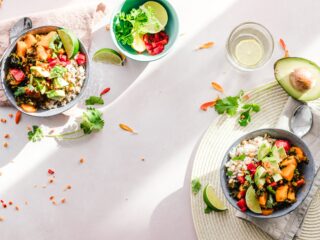
Vegans need to be especially mindful of getting the nutrients their bodies need, as some key nutrients are found predominantly in animal products. This means that vegans need to make sure they are eating a varied and nutrient-rich diet in order to avoid deficiencies.
vegan whole foods diet
Protein: Protein is essential for building and repairing tissues, and it can be found in both animal and plant-based foods. However, most vegan sources of protein are incomplete, meaning they don’t contain all of the essential amino acids our bodies need. This means that vegans need to make sure they are eating a variety of protein-rich foods throughout the day in order to get all the amino acids their bodies need. Good vegan sources of protein include beans, lentils, tofu, tempeh, nuts, and seeds.
Iron: Iron is essential for carrying oxygen in our blood. Animal-based sources of iron (known as heme iron) are more easily absorbed by our bodies than plant-based sources (known as non-heme iron). This means that vegans need to be especially mindful of getting enough iron in their diets. Good vegan sources of iron include dark leafy green vegetables, legumes, nuts and seeds, and fortified foods such as cereals and tofu.
Calcium: Calcium is essential for strong bones and teeth. Dairy products are the major dietary source of calcium for many people, but vegans can get calcium from other sources as well. These include dark leafy greens, tofu (if it’s processed with calcium sulphate), fortified plant milks and juices, certain types of fish (such as sardines and salmon), almonds, Brazil nuts, and tahini.
Vitamin B12: Vitamin B12 is essential for healthy blood cells and nerves. It is found naturally in animal products but not in plant foods. This means that vegans need to make sure they are getting enough vitamin B12 in their diet either through fortified foods or supplements.
What nutrients do you need on a vegan whole foods diet
When you eat a vegan whole foods diet, you need to make sure you’re getting all the right nutrients. Depending on your age, sex, and activity level, you may need different amounts of each nutrient.
Here are some of the key nutrients you need to focus on:
Protein: needed for growth, repair, and maintenance of body tissues
Good sources of vegan protein include beans, lentils, tofu, tempeh, seitan, nuts, and seeds.
Iron: needed for the transport of oxygen in the blood
Good sources of vegan iron include dark leafy greens, legumes, tofu, tempeh, fortified breads and cereals, nuts and seeds.
Calcium: needed for healthy bones and teeth
Good sources of vegan calcium include dark leafy greens, broccoli, kale, tofu (made with calcium sulfate), fortified breads and cereals, fortified non-dairy milks.
Where to get nutrients on a vegan whole foods diet
A vegan whole foods diet is rich in nutrients and can help you stay healthy and disease-free. However, it’s important to make sure you’re getting all the nutrients you need in order to maintain your health.
There are a few key nutrients that are particularly important for vegans to be aware of:
Protein:
Protein is essential for building and repairing muscle, and it can also be used as a source of energy. Good sources of protein on a vegan whole foods diet include beans, lentils, nuts, seeds, and soy products.
Iron:
Iron is necessary for carrying oxygen in the blood. Good sources of iron on a vegan whole foods diet include dark leafy greens, legumes, raisins, and fortified cereals.
Calcium:
Calcium is essential for strong bones and teeth. Good sources of calcium on a vegan whole foods diet include dark leafy greens, broccoli, tofu, fortified plant-based milks, and fortified juices.










